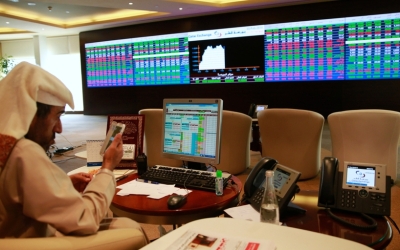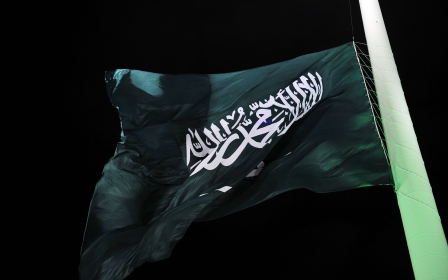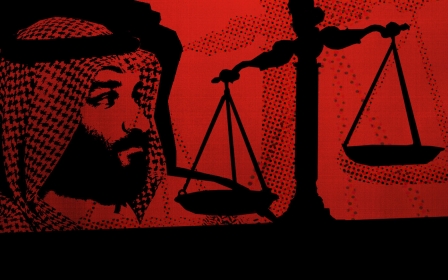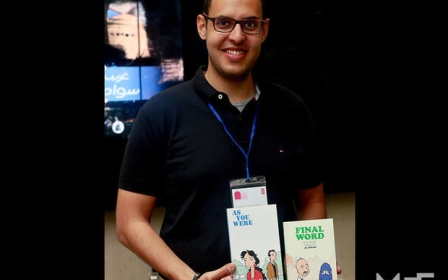Saudi media freedom sharply deteriorating under crown prince's leadership: Report
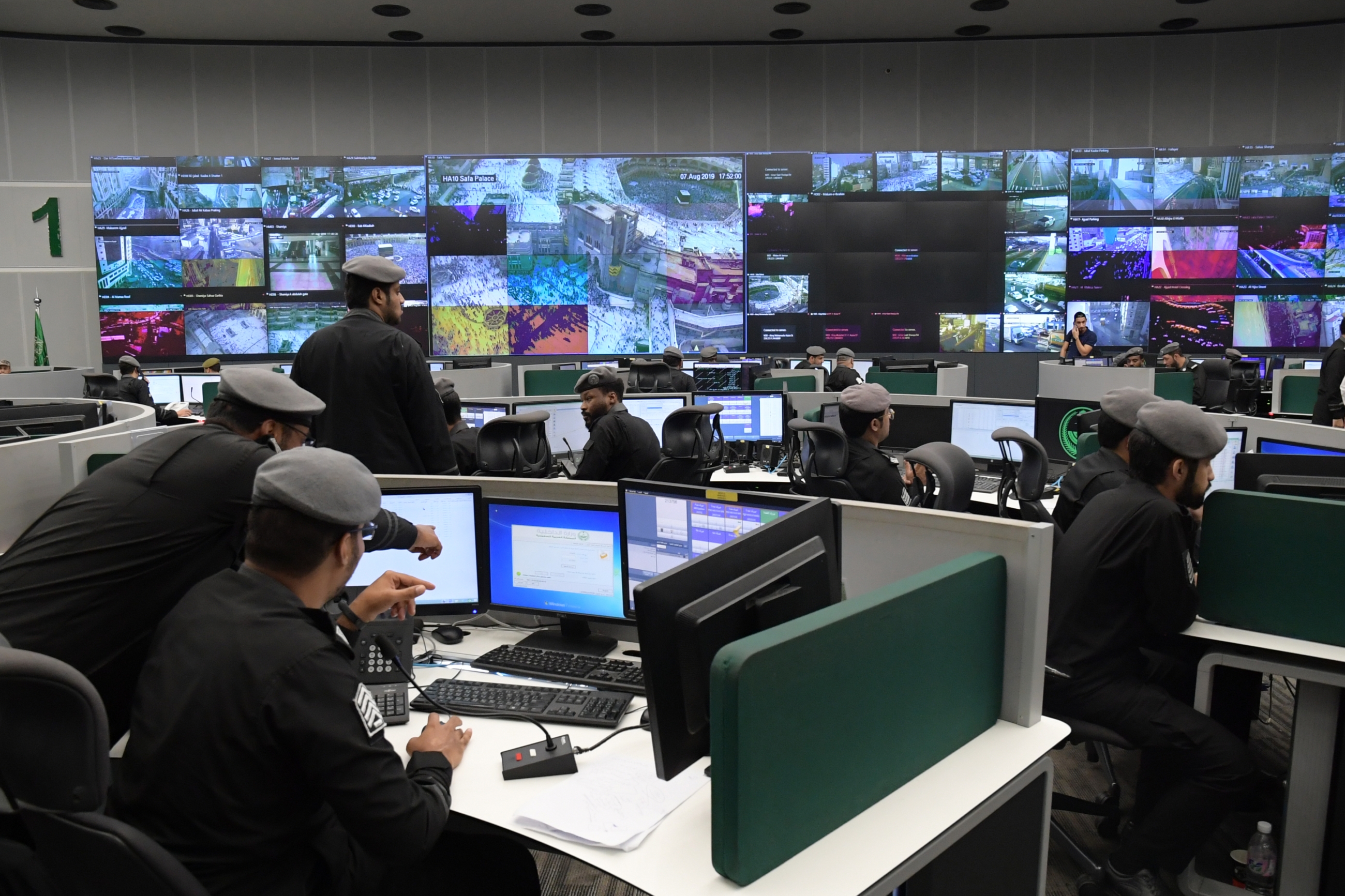
Saudi Arabia and Iran are among the world's worst countries for censorship and media suppression, a press freedom watchdog has found, with Saudi Arabia witnessing a "sharp deterioration" under the leadership of Crown Prince Mohammed bin Salman.
The New York-based Committee to Protect Journalists (CPJ) on Tuesday released its 2019 report on the 10 most censored countries in the world, which looks at how governments work to muzzle journalists and media organisations in their countries.
While Eritrea took the top spot on the list, Saudi Arabia came in at number four and Iran was placed seventh.
"Under Mohammed bin Salman, Saudi Arabia's already-repressive environment for the press has suffered sharp deterioration," the CPJ said in its report.
The government in Riyadh has a history of suppressing media organisations and being hostile to journalists, explained CPJ's advocacy director, Courtney Radsch.
New MEE newsletter: Jerusalem Dispatch
Sign up to get the latest insights and analysis on Israel-Palestine, alongside Turkey Unpacked and other MEE newsletters
Saudi Arabia ranked third on the group's most-censored countries list in 2015, worse than its position this year.
'The fact that Saudi Arabia has gotten away with the murder of Jamal Khashoggi scot-free has sent a very, very dangerous message that I'm sure many throughout the region have heard'
- Courtney Radsch, Committee to Protect Journalists
But Radsch told Middle East Eye that despite moving down the list, press freedom conditions in Saudi Arabia have not improved in the past four years.
"We don't want to send a signal at all that anything in Saudi Arabia has improved when in fact it has worsened," she said.
As of December, Saudi Arabia held 16 journalists behind bars, and it detained nine more in the first half of 2019, the CPJ said.
At least four journalists have been subject to abuse and torture in prison since bin Salman launched his crackdown, the group also reported.
Global outrage over Saudi Arabia's treatment of journalists came to a boiling point last October, when Saudi journalist Jamal Khashoggi was killed inside his country's consulate in Istanbul by a Saudi government hit squad.
A CIA report later concluded that bin Salman, the country's de facto ruler, ordered Khashoggi's assassination.
"The fact that Saudi Arabia has gotten away with the murder of Jamal Khashoggi scot-free has sent a very, very dangerous message that I'm sure many throughout the region have heard," Radsch said.
The Saudi government has also tightened its grip on digital content and used surveillance technology to suppress coverage of events such as the war in Yemen, where it has launched a deadly military operation in 2015, the CPJ said, citing US media outlets.
It also bans websites and VPN providers, according to Freedom House's Freedom on the Net report, which was released in October last year.
Digital and physical censorship
In its report, the CPJ mainly tracked two types of censorship: digital and physical.
Physical censorship involves more traditional methods to impede journalists' work, such as denying visas and entry into the country, restricting accreditation for foreign media, as well as imprisonment and killings.
Digital censorship includes blocking websites, blogs and social media platforms, the use of online surveillance tools, targeted hacking, and the trolling and harassment of journalists.
Some countries have even used surveillance technology created by Western firms to help increase their censorship, Radsch said.
"Governments have become increasingly sophisticated and multifaceted in using various forms of physical and digital censorship to restrict independent press, to clamp down and retaliate against independent or critical reporting and to restrict the free flow of information," she said.
The deterioration of the free press has been a global trend over the last few years, with many countries implementing new forms of restriction and censorship for journalists.
Some countries with severe restrictions on the press are not included on the CPJ's list, however, such as Syria, Somalia, and Yemen.
While those countries do face heavy censorship, such restrictions cannot be solely blamed on the government, as non-state actors have played a role in the crackdown on media and journalists, the CPJ said.
Iran-US tensions
In Iran, media restrictions have remained steady between 2015 and 2019, with the country ranking seventh on the CPJ's most-censored list in both years.
Tehran requires all journalists in the country to receive accreditation from the government, a requirement that Radsch said it uses to manipulate the media.
In April 2018, Iran blocked internet access to the popular messaging platform Telegram, which had over 40 million Iranian users, Human Rights Watch reported at the time.
While access remains blocked, many Iranians use Telegram via VPNs, which allow them to bypass the government's restrictions.
The CPJ also said in its report on Tuesday that the Iranian "authorities arrest and impose harsh prison sentences on journalists who cover topics deemed sensitive, including local corruption and protests".
The report did not say whether the feud between Iran and the US, sparked by Washington's decision to leave the 2015 Iran nuclear deal last year, has played a part in Tehran's restricted media landscape.
However, Radsch said she was concerned that journalists could get caught in the middle of the dispute.
"The ongoing geopolitical tensions between Iran and the US and the broader international community around the Iran nuclear deal doesn't help matters," she told MEE.
Middle East Eye delivers independent and unrivalled coverage and analysis of the Middle East, North Africa and beyond. To learn more about republishing this content and the associated fees, please fill out this form. More about MEE can be found here.


